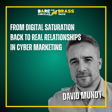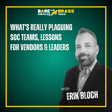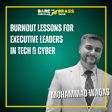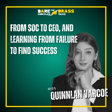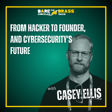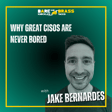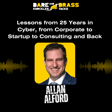
Authentic Networking and Using Your Voice
Candace Williams, security leader, joins the show to talk about what ACTUALLY matters in networking and professional development in cybersecurity. No BS, just real talk from someone who's lived it.
George K and George A talk to Candace about:
- Why your internal barriers are often bigger than external ones
- The truth about transactional networking (spoiler: it doesn't work)
- Why chasing certs and being a “paper tiger” might not get you the job (and what will!)
- Why preparation beats perfection when opportunities arise
Candace drops some serious wisdom about building authentic relationships vs just collecting LinkedIn connections. Whether you're starting out or leading teams, this episode has something for you.
P.S. And no, she won't look at your resume if the first time you reach out is to ask for a job
———
🇨🇦 We’ll be setting the stage on fire with the opening keynote at SecureWorld Toronto on April 8th. And…we’ll be closing out the show with our signature event, the Cyber Pitch Battle Royale!
Use our exclusive discount codes to save on registration for SecureWorld Toronto:
- BKBTSWC1 $50 off - BKBT Conference Pass
- BKBTSWO1 $50 off - BKBT Open Session Pass
- BKBTSWP1 $75 off - BKBT Plus Pass
Register to attend the Cyber Pitch Battle Royale here: https://lu.ma/of952b1f
————
👊⚡️BECOME A SHOW SUPPORTER
https://ko-fi.com/bareknucklesbrasstacks
For as little as $1 a month, you can support the show and get exclusive member benefits, or send a one-time gift!
Your contribution covers our hosting fees, helps us make cool events and swag, and it lets us know that what we're doing is of value to you.
We appreciate you!


